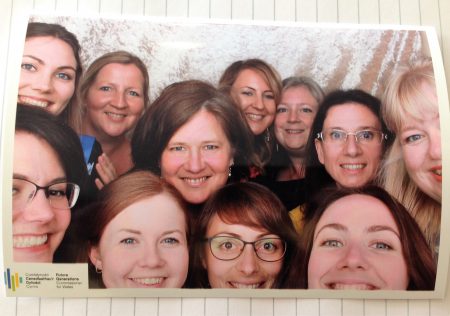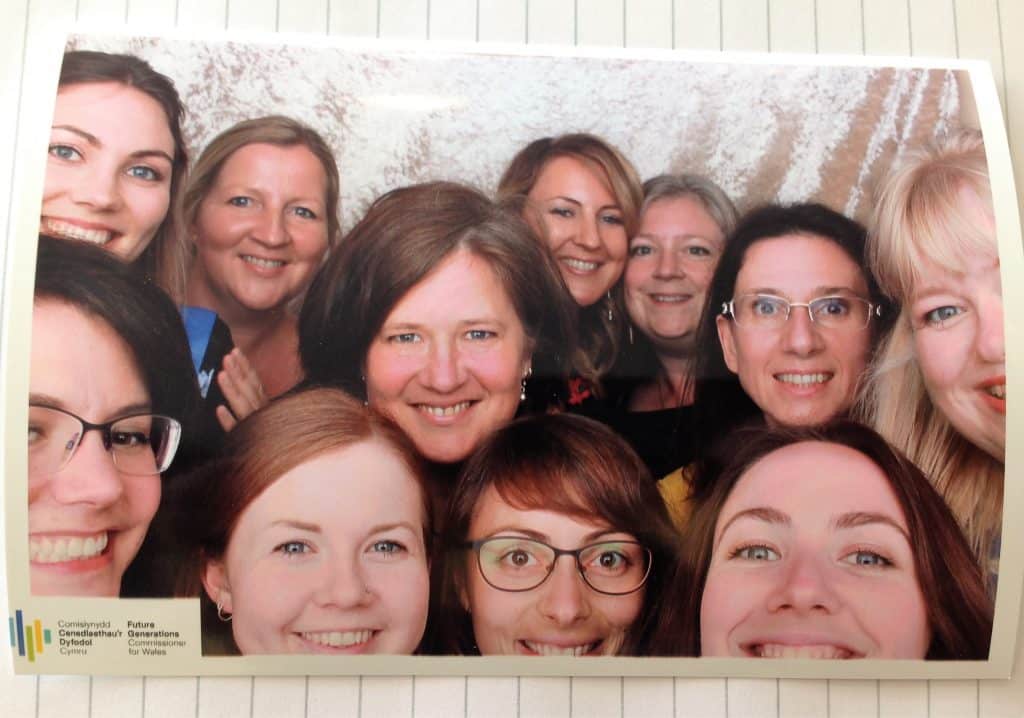Being an MSCA Innovative Training Network, SUSPLACE offers us a chance to work for short periods of time with the project partners. Since the Welsh Government is one of the non-academic partners, I was based in the Future Generations Commissioner’s Office for three months in 2017.
An unexpectedly friendly environment

I felt welcomed in the Future Generations Commissioner’s Office (FGCO) from the moment I stepped in, despite being 15 minutes late because of mixing up locations. Everyone I met was very kind and there was a general enthusiasm for my project and the research ideas I had shared through an email beforehand. Sophie Howe, the Future Generations Commissioner, told me how relevant my topic was for the office: the city-regional focus because of being a long-term, strategic project with major implications for the development of South East Wales, and the youth perspective because it resonates with the office’s rationale and ways of working.
My supervisor, Kate Hamilton, together with a few other team members, helped me draft some initial learning objectives and we agreed to keep my options opened depending on the office’s priorities and new projects arising. Thus, I spent most of the time studying how the city-region governance structures and the public service bodies engaged with the Act, as well as looking at their efforts of public involvement (which varied enormously across Wales). A few of my observations have been used in a report and, once everyone was back from their summer holidays, I went back and hosted a ‘lunch & learn’ session. I wanted to share my findings in a more accessible and fun way so I used a quiz app that asked participants questions before giving solutions.
Tips and tops
Overall, the secondment was very valuable for me because I learned more about the act, its application and the way the office works. Besides, I got to access various documents that can inform my research, and had the opportunity to observe certain processes from the inside. It was encouraging to see a team of committed people who understand sustainable development in its broadest sense and know how important it is that every person (including the future generations) and every place gets its fair share. Another pleasant surprise was the team’s openness to learn, experiment and step out of the comfort zone – although I heard many of them recognising how easy it is to follow the same routines we are used with.
Reflecting on the whole experience, there are very few aspects which I find less positive. One of them relates to the time limitation as I feel that more time or even a different period (which wouldn’t coincide with my field work or summer holidays) might have allowed me to interact more with the team and work less on my own. I would have also enjoyed being part of a work stream from the beginning until the end, as well as participating in conversations and meetings with public bodies and other partners, as well as events. Regarding the office’s functioning, I thought the direct interaction with citizens and communities was rather limited and the national dialogue, which initially informed the Act, could be maintained and enhanced.
Nonetheless, I have learned a lot and met many inspiring people, so I am really grateful for this entire experience. A big thank you to the entire team, especially to Kate for all the support and being the living proof that academics can speak simple and articulate English, Heledd for the warm smiles, all the help and wonderful way of comparing the unconference to a wedding, Eurgain and Rita for the unconditional help and valuable advice, Cathy and Tanya for sharing their work projects with me, Claire for all the coffee, updates and the cycling inspiration, as well as Sophie for opening the door so I could receive all this.

